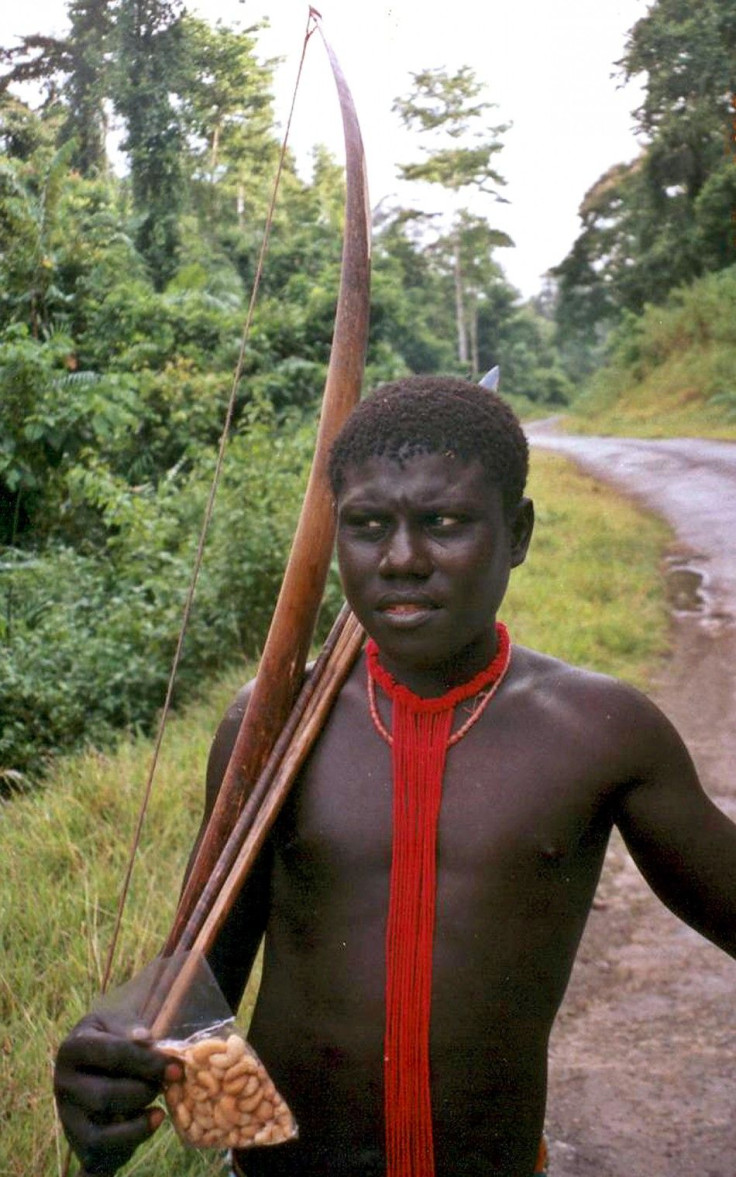Jarawa People in ‘Beastly Conditions’ Survived Tsunami 2004; Will They Succumb to Govt.’s Call for ‘Mainstreaming’?

The Indian Ministry of Tribal Affairs and the Bharatiya Janata Party (BJP) - one of the country's leading political parties - called for the assimilation of the Jarawa tribes of the Andaman and Nicobar Islands.
The call for assimilation, which came on Friday, said the group should not be left in their beastly condition and should enjoy the benefits of development.
It would be totally unfair to leave Jarawas in a beastly condition forever. At the same time I am certainly not the one who would like to expose them to mall and junk culture, the Minister of Tribal Affairs, V. Kishore Chandra Deo said.
The call came in the wake of recent uproar over video footage that shows Jarawa women being forced to dance naked for tourists.
Illegal human safaris on the Andaman Trunk Road (ATR), which cuts through the restricted Jarawa reserve in India's south Andaman Island, continue to threaten these indigenous people with the risk of exposure to an outside world that could bring them disease, illness and even death.
Ironically though, while exposure to their fellow men could prove fatal, the tribe has survived some epic natural disasters.
Despite being close to the epicenter of an earthquake of 8.8 magnitude in December 2004, not a single Jarawa died... either from the quake or the ensuing tsunami that claimed the lives of about 227,898 people, according to a U.S. Geological Survey (USGS) report.
Jarawa, who have little contact with mainstream society, all escaped from the waves. The Jarawa were deep in the forest hunting, and when they felt the earthquake, they are said to have stuck their bows and arrows in the ground in an effort to reduce its intensity, Sophie Grig, a Senior Campaigner with Survival International, a London-based organization working for tribal people's rights worldwide, told IBTimes in an exclusive interview.
Does this mean the tribe has a better understanding of their environment?
They knew the waves were coming because they'd seen the seas recede and felt the earthquake, they knew to flee to higher ground. Their sophisticated knowledge and understanding of their environment may well have saved them, Grig added.
Grig said that besides the Jarawa, three other tribes of the Andaman survived the tsunami - the Sentinelese, who have no contact with outsiders; the Onge and the Great Andamanese, both of whom have been assimilated by the government and have regular contact with outsiders. However, many from the assimilated Nicobarese tribe of the Nicobar Islands died during the disaster, she added.
The government's latest stance on mainstreaming the Jarawa people seems to have cast fear over their survival from forceful assimilation into mainstream society. Experts believe that forcibly mainstreaming tribal people could prove catastrophic, for these people have little or no immunity to common diseases and the risk of exploitation is ever present.
When tribal people around the world have been forced into the 'mainstream', rates of disease, depression, addiction and suicide soar, Grig said, adding that no government in the Americas has advocated assimilation for more than thirty years.
She said that compared to other tribes like the Great Andamanese, who have been given the benefits of government's assimilation policy, the less-contacted Jarawa people have better health and quality of life. They may be poor in monetary terms but they are supposed to be the inhabitants of their land, and any kind of assimilation for that matter, would mean they could be forced to lose those rights.
Minister Deo must move away from the idea that tribes will inevitably end up 'mainstreamed' or that their life is 'primitive' or 'beastly'. The Jarawa have thrived in their forests for more than 55,000 years. The Jarawa's land and its resources must be protected so that they can continue to live in their forest and only they must decide and control what, if any, 'developments' or changes they want, she concluded.
© Copyright IBTimes 2025. All rights reserved.





















